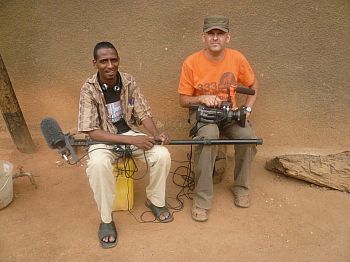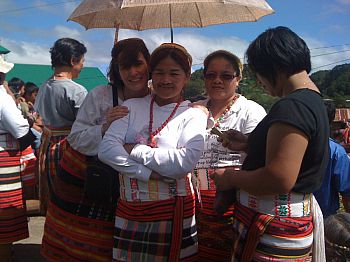Keynote Speakers

Trond Waage
‘Les Mairuuwas’ masculinities and expectations of migration among migrants in Central Africa
About Dr Waage
Dr Waage is an Associate Professor at the University of Tromsø, Norway. He works in Northern Norway, West and Central Africa and has a particular interest in ethnicity, youth, globalization/creolisation and urbanization. Dr Waage works in the Department of Social Anthropology and been connected to Visual Cultural Studies since 1994, participating in the development of the programme and teaching different subjects. Since 2006 he has also taught Visual Anthroplogy at the University of Bamako, Mali.
About his Keynote presentation
‘LES MAIRUUWAS’ (The Masters of Water) is an ethnographic film about young male migrants and their dreams of succeeding in the city. Dr Waage has followed a milieu of water transporters in urban Cameroon over many years. The four men portrayed, are among the thousands uneducated poor, that annually migrates from the Central African Republic to Cameroon searching for a better life. The film describes their daily struggles to make a living and create meaning in harsh and highly vibrant urban surroundings.
We meet Coco the youngest of them, as he prepares to get his own room after years on the street. We follow Uncle as he strives to earn enough money to take care of his son. Abel expresses the felt stigma and his deeply desired wish for another way of life, after more than 15 years as a water transporter. Their belonging as a group and their possibilities to get work in the neighborhood is dramatically challenged when Bachirou is arrested.
Selected publications for further reading
- Waage T (2015) Dependent on Trust. Refugees coming from The Central African Republic to live in Urban Cameroon. Die Zeitschrift für Ethnologie. ISSN 0044-2666
- Waage T (2013) Seeing Together. Towards a Shared Anthropology with Visual Tools. Liverpool University Press 2013 ISBN 9781846318917.s 157 - 173
- Waage T (2013) Globalisation and the consolidation of ethnic categories: Creolisation processes in poly-ethnic Ngaoundere, Cameroon. Editions des Archives Contemporaines 2013 ISBN 978-2-8130-0103-0.s 215 - 236.

Dierdre McKay
International care chains, migration and multi-local families in Southeast Asia
About Dr McKay
Dr McKay is a Senior Lecturer in Social Geography and Environmental Politics at Keele University, UK. Her research draws on both social/cultural geography and social anthropology to explore people's place-based experiences of globalisation and development. Much of her work has been conducted with people who originate in indigenous villages in the northern Philippines. She is interested in the long-distance relations that connect outmigrants to their sending communities, changes in local livelihoods and the possibilities for locally sustainable, alternative economic development, and environmental degradation linked to migration as well as the kinds of social networks and relationships they build through migration.
About her Keynote presentation
Dr McKay will present research which focuses on the intimate economies of Filipino migrants’ daily lives. Migrants send cash and goods home. They also share flows of feeling with their multi-local families. Together, these exchanges link together sites in the Philippines with Singapore, Hong Kong and even farther afield. But migrants and their families don’t always share the same long-term goals for investment or definitions of success. By teasing apart their conflicts, it is clear that the apparent prosperity generated by migration is precarious. Failure of migration projects, migrants’ investments, and family strategies remains a very real outcome, alongside the much-lauded successes on which the Philippine economy depends. The burden of failure falls more heavily on women. Fear of being seen to fail – to fail to become socially mobile or ‘middle class’ - motivates migrant women to remain in exploitative or unsafe conditions, far from home, and to seek further migration opportunities, making patterns of long-term multi-locality. The Philippines’ 'remittance landscapes' are only the tip of the iceberg. Women’s remittances are being treated as a stable flow of resource to sustain state infrastructure, public services, political engagement and the new Philippine middle class – in other words, not only familial social mobility but national development success.
Selected publications for further reading
- McKay D (2016) Archipelago of Care. (Indiana University Press)
- McKay D (2012) Global Filipinos. (Indiana University Press)
- Gibson K, Cahill A, and McKay D (2010) Rethinking the Dynamics of Rural Transformation: Performing Different Development Pathways in a Philippine Municipality. Transactions of the Institute of British Geographers 35(20), 237 – 255
- McKay D (2007) Sending Dollars Shows Feeling: Emotions and Economies in Filipino Migration. Mobilities 2(2), 175 – 194
- McKay D (2003) Cultivating New Local Futures: Remittance Economies and Land-use Patterns in Ifugao, Philippines. Journal of Southeast Asian Studies 34(2), 285-306
